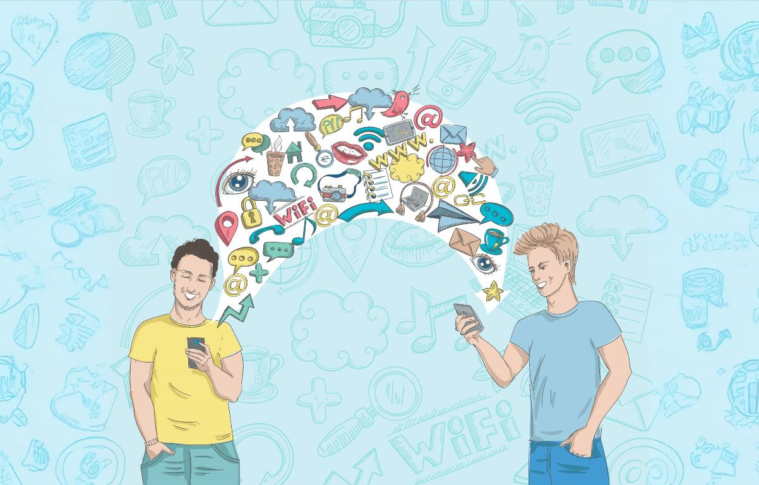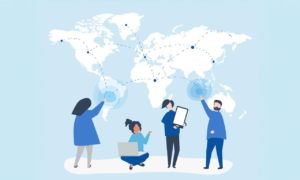Background
Education is often described as the cornerstone of social development, and its impact on society extends far beyond academic achievement. It plays a pivotal role in shaping individuals’ perspectives, behaviors, and social interactions. The quality and accessibility of education influence economic development, social mobility, and overall societal progress. This case study explores how education affects society, examining the interplay between education and social change, economic development, and cultural transformation.
Key Areas of Impact
1. Economic Development and Prosperity
Education is a powerful driver of economic growth. By providing individuals with the knowledge and skills necessary for employment, education directly influences productivity, innovation, and the overall economy. A more educated workforce is capable of adapting to changes in technology, contributing to higher wages, and fostering a competitive job market.
Example: South Korea’s Educational Revolution South Korea is a prime example of how investment in education can lead to substantial economic development. After the Korean War, the country made a significant push to increase educational access and improve the quality of schooling. By prioritizing education, especially in science, technology, and engineering, South Korea transformed its economy from one of the world’s poorest to one of the wealthiest in a few decades.
Impact: South Korea’s focus on education resulted in an educated and highly skilled workforce that could fuel technological advancements, innovate in manufacturing, and attract foreign investments. The country became a global leader in industries such as electronics, automotive, and shipbuilding, directly linking education to economic prosperity.
2. Social Mobility and Equality
Education has long been seen as a pathway to upward social mobility, providing individuals from disadvantaged backgrounds the opportunity to improve their socioeconomic status. When accessible and of high quality, education serves as a tool to reduce social inequality and create a more equitable society.
Example: The Role of Education in Reducing Poverty in India In India, education plays a crucial role in improving social mobility, particularly for marginalized groups such as Dalits (previously known as “untouchables”) and women. Government initiatives such as mid-day meal schemes, scholarships, and increased enrollment rates for girls have led to significant improvements in educational access.
Impact: The expansion of educational opportunities for historically disadvantaged groups has helped bridge the gap between different social classes. For example, increased literacy rates among girls in rural India have led to better job prospects, more women in the workforce, and improved economic independence for families. Education has also contributed to raising awareness about social issues such as caste-based discrimination and gender equality.
3. Cultural and Social Transformation
Education is instrumental in shaping societal norms, values, and behaviors. It serves as a vehicle for cultural transmission and fosters an understanding of different perspectives. By exposing individuals to new ideas, worldviews, and social issues, education contributes to cultural exchange and tolerance.
Example: The Impact of Education on Civil Rights in the United States The civil rights movement in the United States was significantly influenced by education. Higher education and access to intellectual resources enabled leaders such as Martin Luther King Jr. and Malcolm X to advocate for social change. The expansion of higher education opportunities for African Americans in the mid-20th century empowered them to challenge systemic racism and demand equal rights.
Impact: The educational opportunities that were made available to African Americans in the 1950s and 1960s helped to shift societal attitudes toward race and equality. Schools and universities became spaces for political activism, where students learned about civil rights, justice, and equality. As a result, education played a key role in reshaping societal values and challenging deeply entrenched cultural norms.
4. Health and Well-being
Education is also closely tied to improvements in public health. More educated individuals tend to make healthier life choices, understand healthcare information better, and live longer lives. Public health education, in particular, can lead to widespread awareness of hygiene, disease prevention, and mental health.
Example: The Role of Education in Reducing HIV/AIDS in Sub-Saharan Africa In many sub-Saharan African countries, education has played a critical role in combating the HIV/AIDS epidemic. Through government and NGO programs, individuals have been educated about safe sex practices, the importance of regular testing, and the reduction of stigma associated with the disease.
Impact: Increased access to education in the region led to a significant reduction in HIV transmission rates. Young people, particularly in urban areas, have become more knowledgeable about the risks of HIV and how to prevent it. Educated individuals also have a better understanding of the importance of seeking medical care and adhering to antiretroviral treatments, contributing to improved public health outcomes.
5. Strengthening Democracy and Civic Participation
Education fosters informed citizenship, which is essential for the functioning of a democratic society. An educated population is more likely to participate in political processes, advocate for their rights, and contribute to decision-making in local and national governance. Education also promotes understanding of political systems, human rights, and the importance of rule of law.
Example: The Role of Education in Strengthening Democracy in Scandinavia Scandinavian countries like Denmark, Sweden, and Norway have some of the highest literacy rates in the world, and their education systems are designed to prepare citizens for active participation in democracy. Citizens in these countries are well-informed about political issues and are more likely to vote in elections, engage in public debates, and hold their governments accountable.
Impact: In these societies, education has contributed to high levels of political engagement and transparency. People are more likely to understand their rights, participate in democratic processes, and demand accountability from their leaders. This, in turn, leads to stronger political institutions, greater social cohesion, and effective governance.
Challenges in Education and its Societal Impact
While education has significant potential to benefit society, there are several challenges that need to be addressed for its full impact to be realized:
Access and Inequality: Education remains unequal in many parts of the world. Despite efforts to increase access, marginalized communities, particularly in developing countries, continue to face barriers such as poverty, gender discrimination, and lack of infrastructure. Ensuring that all individuals have equal access to quality education is essential to maximizing its societal impact.
Quality of Education: In many regions, the quality of education remains a concern. A lack of properly trained teachers, outdated curricula, and inadequate educational resources can undermine the potential benefits of education.
Technological Disparities: The rise of digital learning has increased access to education but also created a new divide. Those without access to technology are at a disadvantage, which can exacerbate inequalities in education.
Conclusion
Education is one of the most powerful tools for societal transformation, influencing economic development, social mobility, cultural values, public health, and democratic engagement. As evidenced by various global examples, the positive effects of education on society are far-reaching, yet challenges such as inequality and quality must be addressed to ensure that education can fulfill its potential for all individuals. By continuing to invest in and prioritize education, societies can build a more equitable, prosperous, and informed future.



